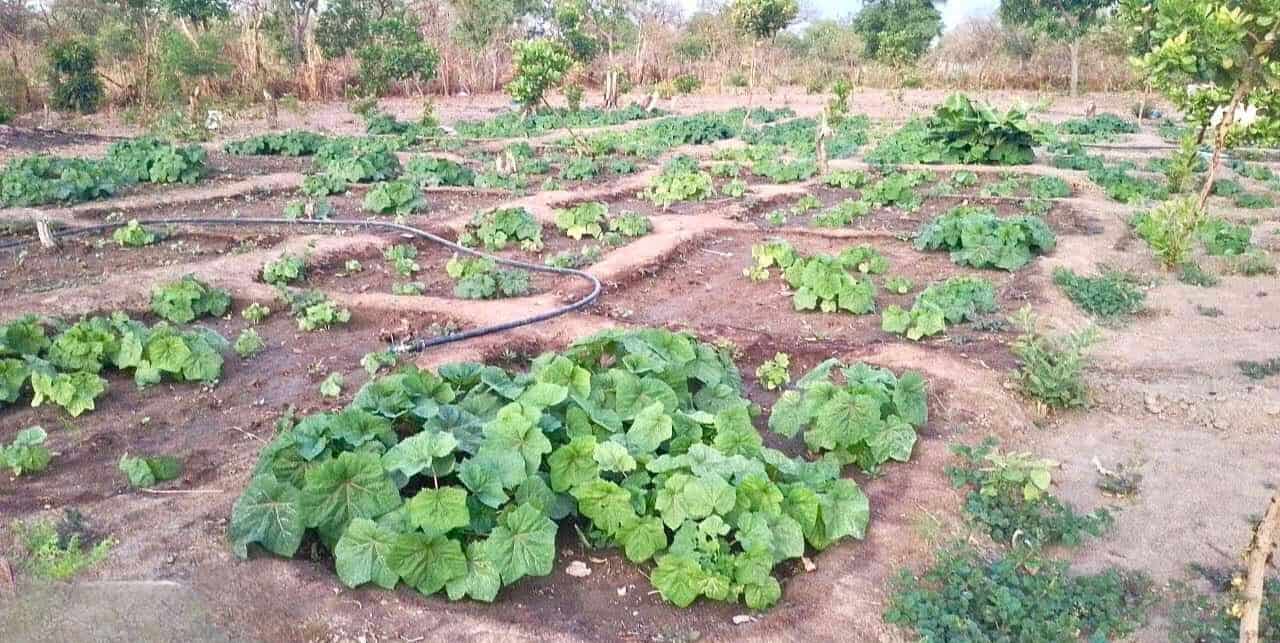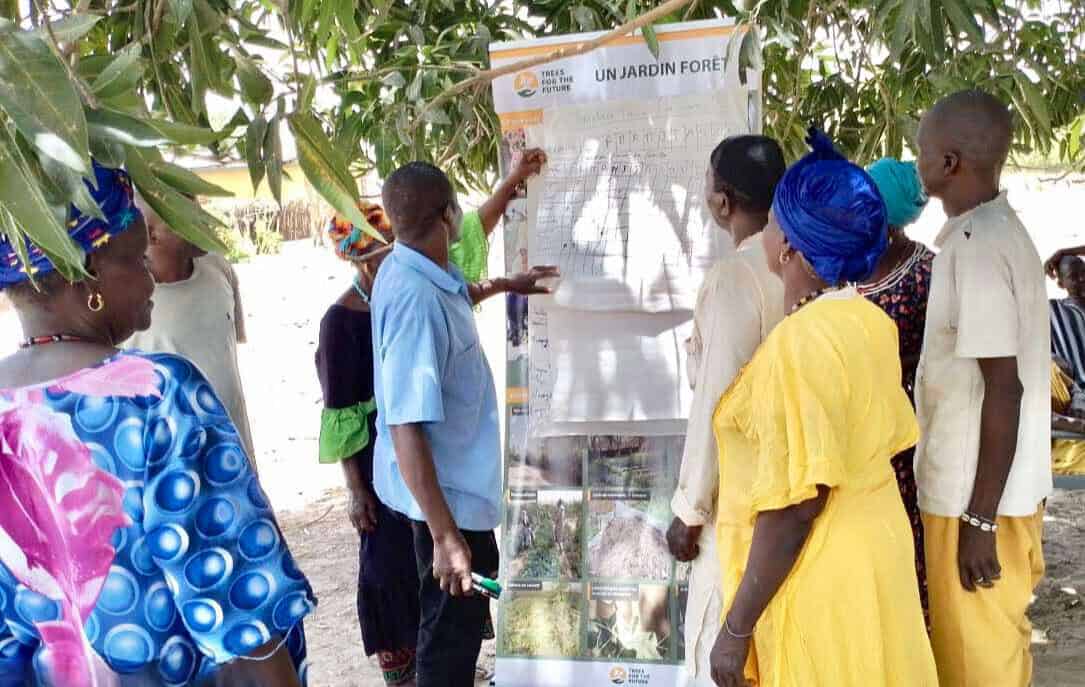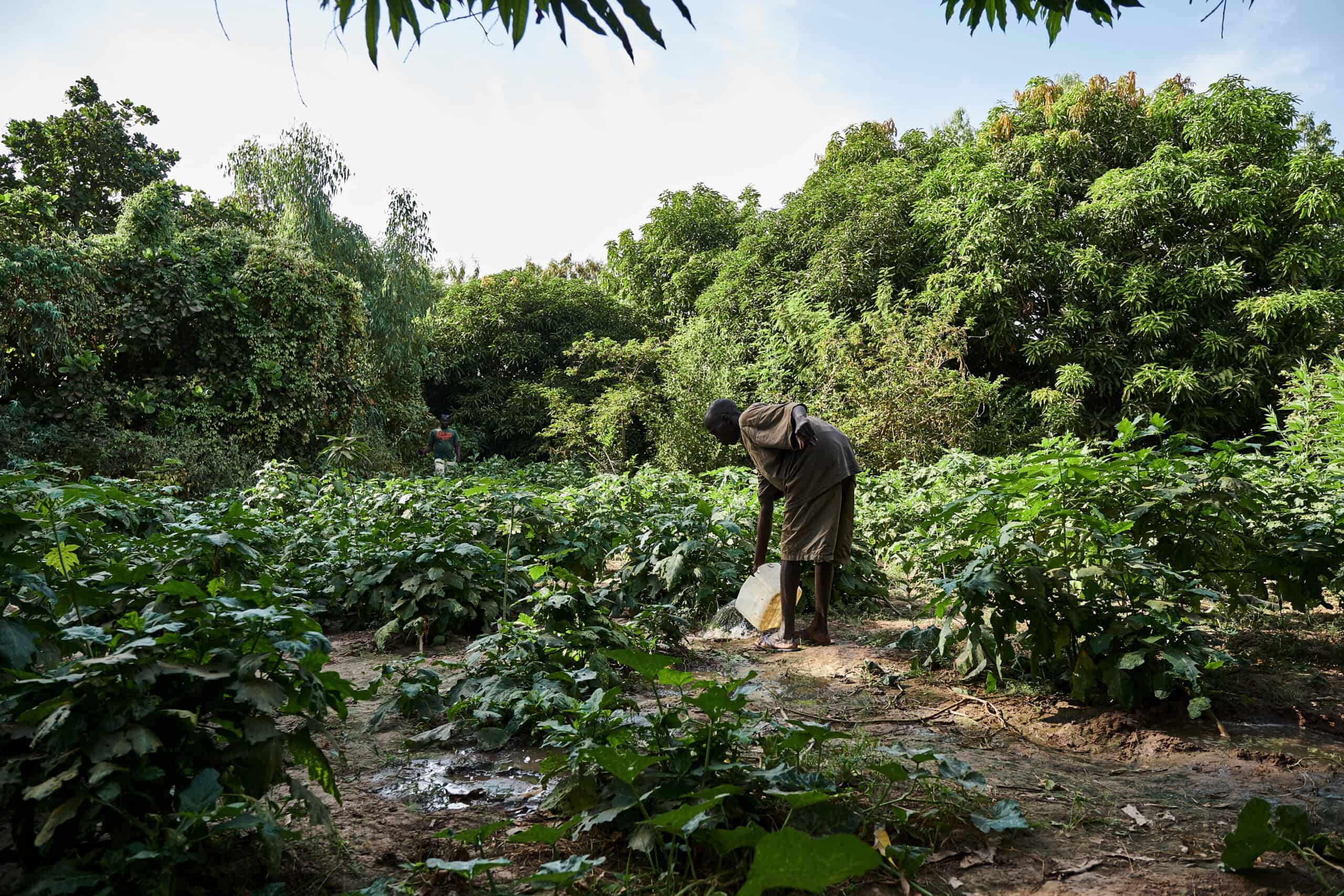For Malick Danfakha, a father of eleven in rural Senegal, it’s a point of pride to watch his small farm flourish. His fields, once bare, now overflow with vegetables and trees. His children eat well, his neighbors buy fresh produce from his land, and the future feels a more secure.
But life wasn’t always this green.
For years, Malick worked full-time as a gold miner in Diakhana village, deep in Senegal’s Kedougou region. Farming was something he did on the side, planting a few rows of corn and millet during the rainy season to help feed his large family. The mines, though dangerous and unpredictable, seemed like his best option for earning a living.
“I never thought farming could be more than survival,” Malick says. “But mining, that life is risky.”
Mining wasn’t just physically dangerous. Collapsing tunnels and long days underground were part of the job, but so was environmental damage. The mines left deep scars on the land, worsening soil erosion and leaving little behind for future generations.

A New Opportunity: The Forest Garden Approach
In 2024, everything changed. Malick joined his local Trees for the Future (TREES) group, Dentila Somalia, he learned how to turn his small farm into a sustainable, productive business. With guidance from TREES technicians, he was introduced to the Forest Garden Approach, a sustainable farming method designed to help smallholder farmers like him restore their land, grow more food, and earn a reliable income.
With support and training from TREES staff, Malick learned how to:
- Plant a living fence of trees to protect his farm.
- Create alleyways for diversified crops.
- Enrich his soil with organic composting.
- Balance vegetables, grains, and fruit trees for year-round harvests.
With this hands-on training, seeds, and farming tools, hisonce-small plot soon transformed. Malick’s farm now produces more than he ever imagined. Rows of pigeon peas, moringa trees, peppers, eggplants, papayas, tomatoes, and okra fill the fields that once grew only corn and millet.
From Risk to Resilience: Why Sustainable Farming Matters
Sustainable farming in Senegal is about more than crops, it’s about resilience. The Forest Garden Approach allows farmers like Malick to feed their families while protecting and restoring the environment. Unlike mining, farming offers stability, safety, and growth.
In just one season, Malick’s farm transformed. His once-empty fields turned green and lush with new crops, providing both food for his family and produce to sell. Today, he’s proud to say his farm is not only feeding his children but also earning an income.
Malick’s story reflects a wider truth: smallholder farmers, when equipped with training and tools, can build thriving farms that restore land and improve lives.

Looking Ahead: Farming as Business, Farming as Legacy
Malick’s plans don’t stop here. He hopes to expand his farm, grow more crops for sale, and help others in his community do the same.
“Now I see farming as a business,” he says. “And I want to help others do the same.”
With every tree he plants and every vegetable he sells, Malick is building not just a farm, but a future.

Why Forest Gardens Work
The Forest Garden Approach combines agroforestry and regenerative agriculture to help farmers:
- Improve soil health
- Restore biodiversity
- Protect against drought and erosion
- Increase food security
- Earn reliable income
In regions like Kedougou, where climate change and poverty pose daily challenges, Malick’s journey is a testament to what’s possible when farmers are given the tools and knowledge to unlock their land’s potential and their own.
